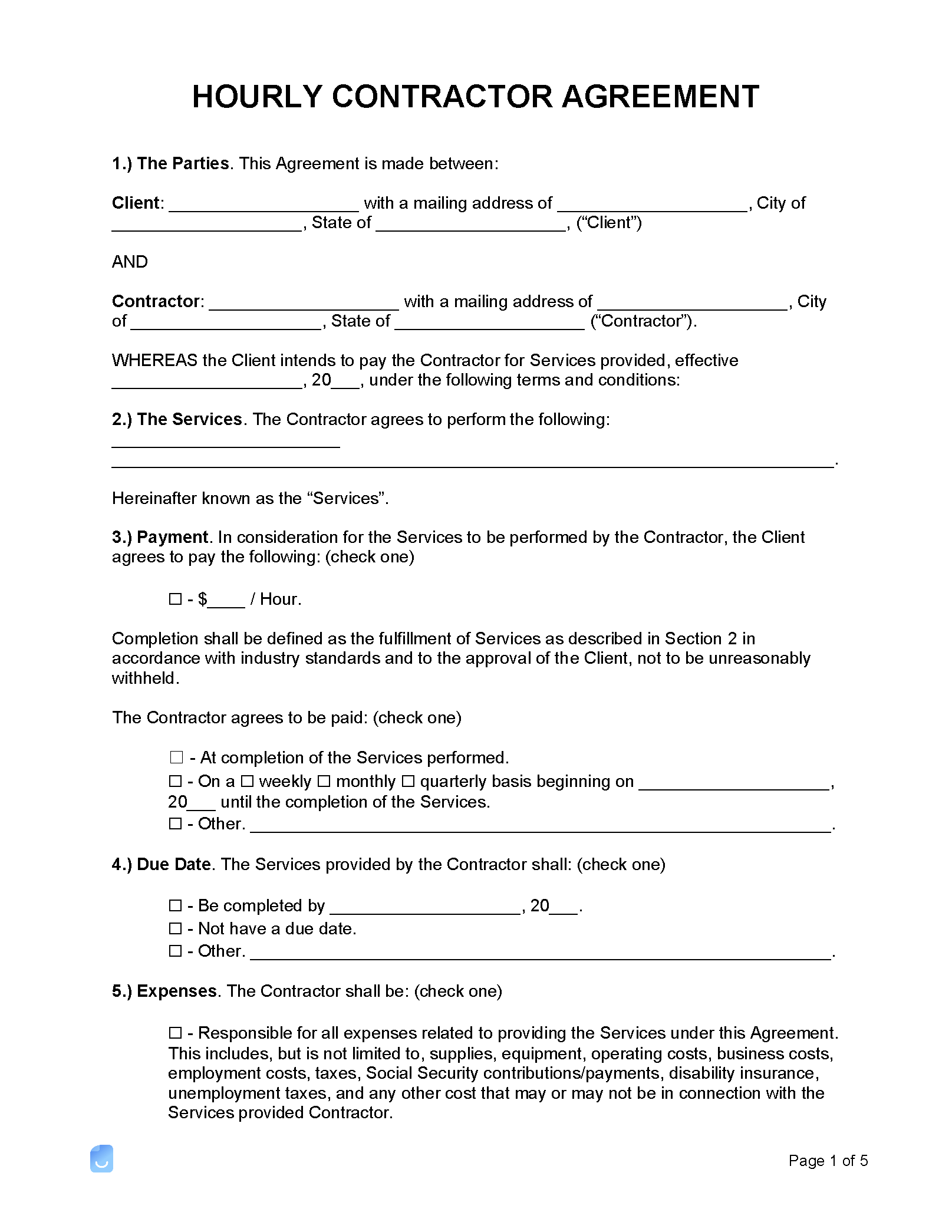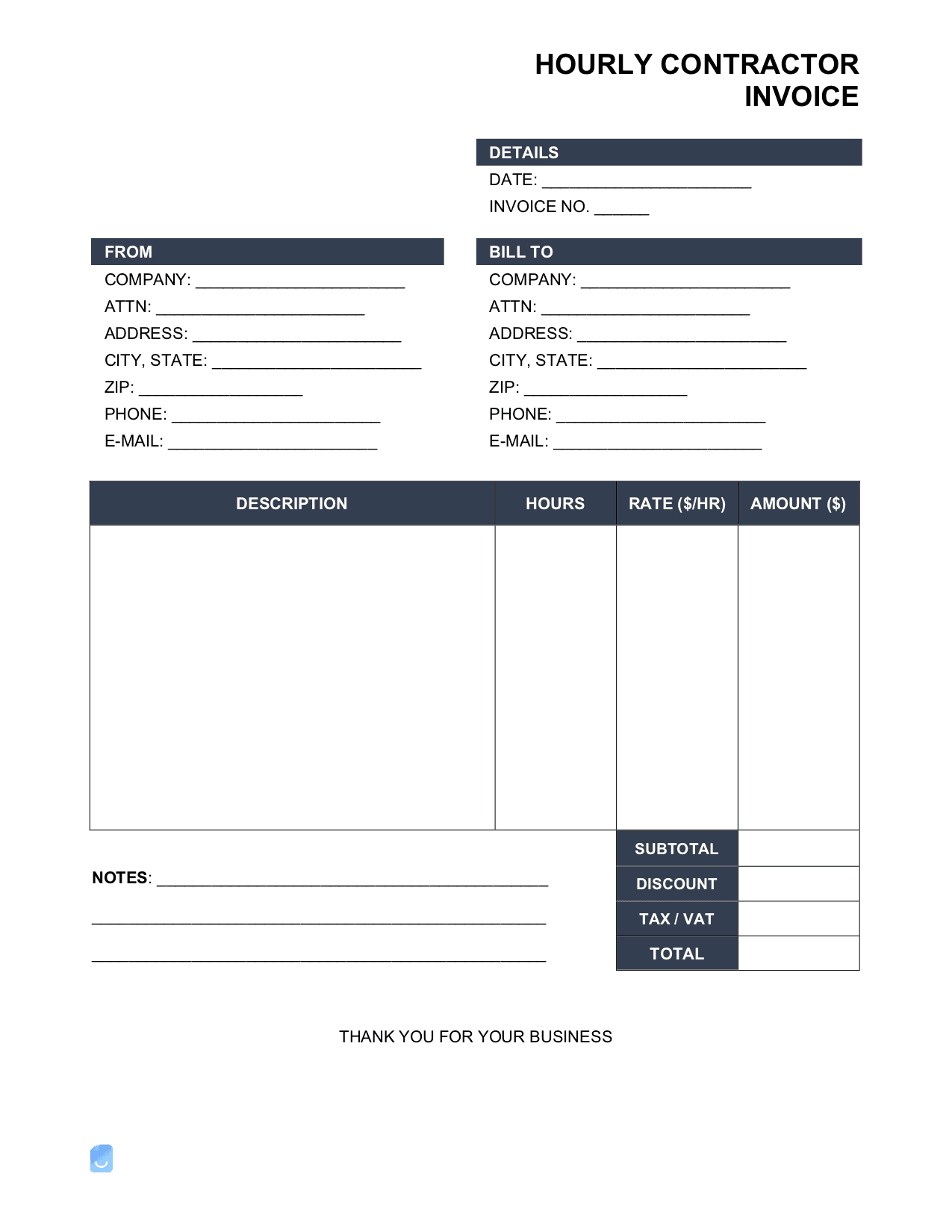Hourly Contractor Invoice Template
An hourly contractor invoice is a billing document, similar to a receipt, that gets used by contractors to collect payment for services rendered. This invoice should be used by contractors who get paid on an hourly basis.
Hourly Contractor Invoice: How to Make Sure You Get Paid What You’re Owed
A contractor invoice is a document that a contractor provides to a client after completing work on a project. It is important for the contractor to keep track of their invoices so that they can follow up with clients who have not yet paid. If a contractor is not paid on time, it’s important for the contractor to send a reminder invoice or contact the client directly to request payment.
What is a Contractor?
A contractor is someone who works in the construction industry and gets hired by clients to complete part or all of a construction project. Types of contractors include general contractors, who supervise and oversee a building plan, and subcontractors, who have specific skill sets related to, for example, plumbing or HVAC work.
Hourly Contractor
Most contractors are hired on a per-job basis. Rarely are contractors hired on a per-hour basis, but it does happen. When a contractor signs an agreement to work on a project, it’s usually in their best interest to complete the job ahead of schedule so that they can get onto their next job to make more money. If a contractor is being paid hourly, it should only be done if they provide a service based on time rather than an end product.
Contractor Hourly Rate ($/hr)
Hiring a contractor at an hourly rate isn’t cheap. In most cases, the work involves hard physical labor such as lifting materials. The scope of the work can influence its cost. There is no definitive answer to this question as hourly rates for contractors can vary greatly depending on a number of factors, including the specific contractor’s experience, the type of work being performed, the location of the project, and more. That said, in general, one can expect to pay anywhere from $50 to $200+ per hour for a contractor’s services. Here are some benchmarks:
- Service with Labor ($80 – $100) – Any heavy lifting or service that puts strain on the body will cost more money. See what your local moving companies are charging and base your pay on their prices.
- Service without Labor ($20 – $50) – Depending on the skill level of the service needed, the pay should be based on what the average hourly pay is for that position but slightly higher.
Tracking Hours Worked
To calculate the hours worked for an hourly contractor invoice, keep track of the number of hours worked each day using a time sheet or a time tracking app. At the end of each day, calculate the total number of hours worked. Then, multiply the total hours worked by the hourly rate. This will determine the total amount due for a day’s work.
How Many Hours Can a Contractor Work?
There is no limit on the number of hours a contractor can work, as technically they are their own employer. However, when hiring a contractor and creating a schedule, the hours should be reasonable. The aim is to follow the standard hourly work structure as closely as possible, which is:
Monday – Friday 8 hours per day 40 hours per week
Hourly Contractor Agreement
Download: Adobe PDF, MS Word, OpenDocument 
Key Components of an Hourly Contractor Invoice
An hourly contractor invoice should include the following key components:
- The contractor’s name, address, and contact information
- The client’s name and contact information
- A description of the work performed
- The date or dates the work was performed
- The number of hours worked
- The hourly rate
- The total amount due
- Any applicable taxes
- Any discounts or promotions
- Payment methods accepted (e.g. check, cash, credit card, PayPal, Venmo)
Benefits of Using an Hourly Contractor Invoice
There are many benefits to using an hourly contractor invoice when billing for services. Perhaps the most obvious benefit is that it provides a clear and concise record of the number of hours worked, which can be easily referenced in the event of a dispute. Also, construction projects can involve many contractors and subcontractors, so ensuring that each individual part of the whole is being diligent about tracking time can be helpful for the client and ensure punctual payment.
